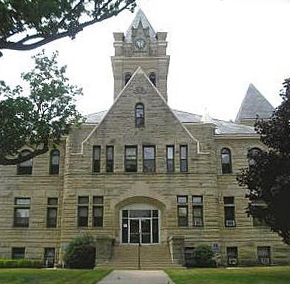 Pulaski County is looking for funding to help get some of the people awaiting trial out of the county jail. Last week, the county commissioners voted to allow Superior Court Judge Crystal Brucker Kocher to apply for a grant from the Indiana Department of Correction to help launch a pretrial release program.
Pulaski County is looking for funding to help get some of the people awaiting trial out of the county jail. Last week, the county commissioners voted to allow Superior Court Judge Crystal Brucker Kocher to apply for a grant from the Indiana Department of Correction to help launch a pretrial release program.
Kocher said counties will be required to have such a program in place by 2020. “Much like we appoint an attorney to people who can’t afford an attorney because it’s their constitutional right to be represented, the supreme court is looking at this as to whether or not it’s a constitutional issue that someone be required to simply sit awaiting pretrials and trials prior to being convicted of something because they can’t afford the $250 to bond out,” she explained.
That means counties will have to implement alternatives for those awaiting trial, “Perhaps drug screens, perhaps monitoring, perhaps home detention, to ensure that the community is safe. All of that comes at a cost to somebody,” Kocher said. “And so what I’m looking at doing is working with the Department of Correction through a grant process, to see if they can assist us in moving towards that, so that in 2020, we’re already up and ready to go, the program’s working, and we have some ideas of how we’re going to fund this.”
Beyond the constitutional implications, Sheriff Jeff Richwine has presented pretrial release as a way to make room for more federal inmates in the Pulaski County Jail, which could, in turn, lead to more money for the county.
Meanwhile, Judge Kocher also told the commissioners last week that the county recently got a $4,200 grant to help cover interpreter costs. “The judiciary is pushing us towards using certified interpreters, and in my court, we use quite a bit,” she said. “I believe last year, we were at about right around $3,000 is what we used, and that was not using a certified interpreter, so it was much less expensive.”
She said a certified interpreter typically charges between $50 and $100 per hour plus travel expenses. But Kocher said trials are generally quicker than with a non-certified interpreter.


















